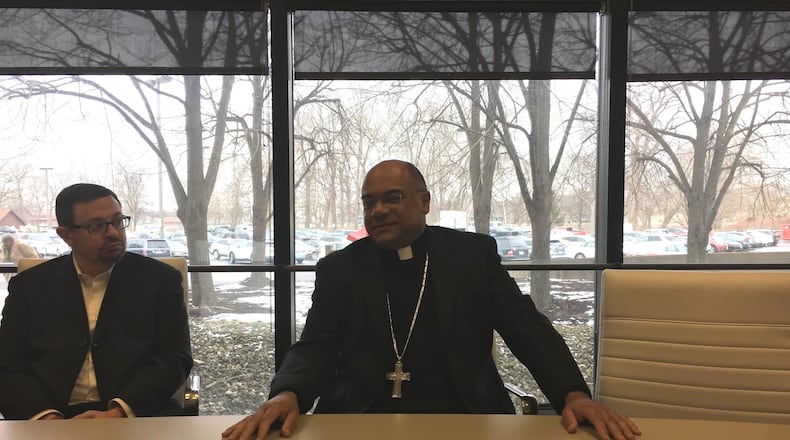The programs offer ways for the church and the public to understand how racism impacts the lives of Americans.
“Despite many promising strides made in our country, the ugly cancer of racism still infects our nation,” a Conference of Catholic Bishops statement said.
TRENDING: ‘Retail apocalypse’ claims stores that can’t adapt, while others thrive
Reporters could not use the names of participants or directly quote them, but could paraphrase their thoughts.
The stories from the testimonials shared ranged from people experiencing racism from teachers and fellow students in high school to neighborhood bullying. Speakers also talked about ethnic intimidation and workplace violence related to race.
Some shared stories of racist episodes that took place in Catholic settings, and some of the speakers said they had felt abandoned by the church on the issue of racism.
Moderator Deacon Royce Winters said the session was designed to bring together a racially diverse group of Catholics in order to start a dialogue regarding racism in the church and in the communities across the country.
“This will hopefully provide us with the opportunity to listen with attentive hearts,” Winters said.
Bishop Shelton Fabre, chair of the USCCB Ad Hoc Committee Against Racism, was joined by Archbishop Dennis Schnurr, and other bishops at an event similar to ones held by the Diocese of Brooklyn, the Archdiocese of St. Louis and the the Diocese of St. Petersburg in Florida.
TRENDING: Rob Lowe returning home to Dayton for one-man show
Fabre, who is from the Diocese of Houma-Thibodaux, La., provided context for the need to have a listening session.
In August of 2017, in Charlottesville, Virginia, white nationalists and neo-Nazis gathered in a scene that turned fatal when a white nationalist drove a vehicle into a crowd of counter-protesters, killing a woman.
That same month, the Ad Hoc Committee Against Racism was formed, and in November the USCCB voted 241 to 3 to issue a Pastoral Letter Against Racism, called “Open Wide Our Hearts: The Enduring Call to Love.”
The letter condemns racism, the rise of anti-Semitism, anti-Muslim sentiment and xenophobia. Other topics such as police brutality, the water crisis in Flint, Mich., mass incarceration, and housing and educational discrimination are also highlighted in the letter.
BEST OF DAYTON: 3 incredibly delicious steaks
“The USCCB witnessed the country’s racial tension growing to a fever pitch following years of strive in local communities,” Fabre said. “We know and acknowledge that the events around the country have revealed and sparked racial tension, and it is something that is very much in the hearts and on the minds of numerous people in our country and in our church.”
Fabre said in an interview with the media prior to the event that
“a lot of times it (racism) is looked upon as a political issue, but the church is not dealing with this as a political issue. This is a human issue.”
Fabre said the challenge for people inside and outside the church will be to sit down with people from another culture to gain a better understanding of each other.
“A lot of fear comes from misunderstanding,” he said, explaining that is why it’s important to hear the many different voices at the listening sessions. “You can never say you are really listening to somebody unless you are willing to be changed by what you hear.”
About the Author
